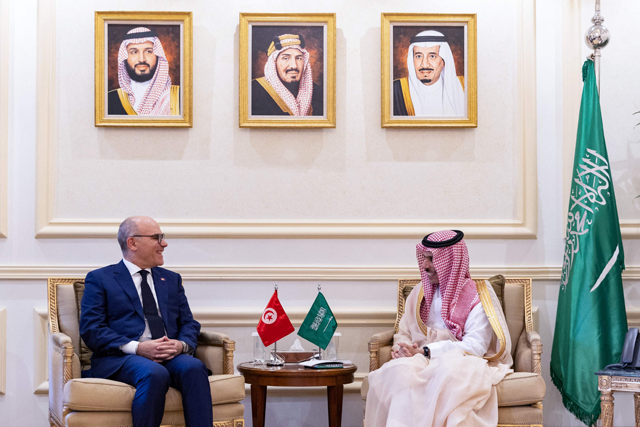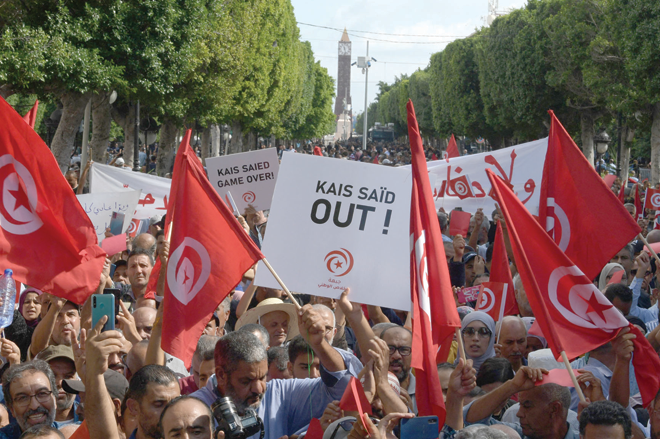You are here
S.Arabia to give cash-strapped Tunisia $500m in assistance
By AFP - Jul 22,2023 - Last updated at Jul 22,2023

This handout photo provided by the Saudi Press Agency SPA on Thursday, shows Saudi Minister of Foreign Affairs Faisal Bin Farhan meeting with his Tunisian counterpart Nabil Ammatr in Riyadh (AFP photo)
RIYADH — Saudi Arabia on Thursday said it will give Tunisia financial assistance valued at $500 million, including a $100 million grant, as the North African country grapples with crippling inflation and debt.
The announcement carried by the official Saudi Press Agency followed a visit by Tunisia's Foreign Minister Nabil Ammar as part of a Gulf tour this week aimed at drumming up financial support.
Ammar also made stops in Kuwait and the United Arab Emirates.
"The Kingdom offers a soft loan and grant to the Republic of Tunisia in the amount of $500 million," SPA said, without providing additional details.
The financial assistance consists of a $400 million soft loan and a $100 million grant, Riyadh's ambassador to Tunis, Abdel Aziz al-Saqer, told Saudi-owned Al Arabiya television on Thursday.
Saudi Finance Minister Mohammed Al Jadaan signed the deal for the assistance alongside his Tunisian counterpart Sihem Boughdiri during a visit to Tunis, SPA reported.
Jadaan announced "further meetings in the coming weeks to provide additional support from the Saudi Development Fund and other development funds from Gulf countries", according to a video released by the Tunisian presidency after the Saudi minister also met President Kais Saied.
Tunisia is struggling under crippling inflation and debt estimated at around 80 per cent of its gross domestic product.
Last October, the North African country reached an agreement in principle with the International Monetary Fund (IMF) for nearly $2 billion, but discussions have since stalled.
Saied, who has assumed near total governing powers since July 2021, has repeatedly rejected what he calls the "diktats" of the IMF before a loan is granted.
On Sunday, he reiterated his rejection of IMF demands to lift subsidies on basic products and services, namely oil and electricity, as well as the restructuring of 100 state-owned firms.
Related Articles
TUNIS — Thousands of Tunisians demonstrated on Saturday in the capital Tunis, denouncing a power grab by President Kais Saied and demanding
TUNIS — The European Union and Tunisia on Sunday signed a memorandum of understanding for a "strategic and comprehensive partnership" on irr
TUNIS — Heavily indebted Tunisia said on Tuesday it had received a loan from oil-rich neighbour Algeria, the day before a visit by Algerian













